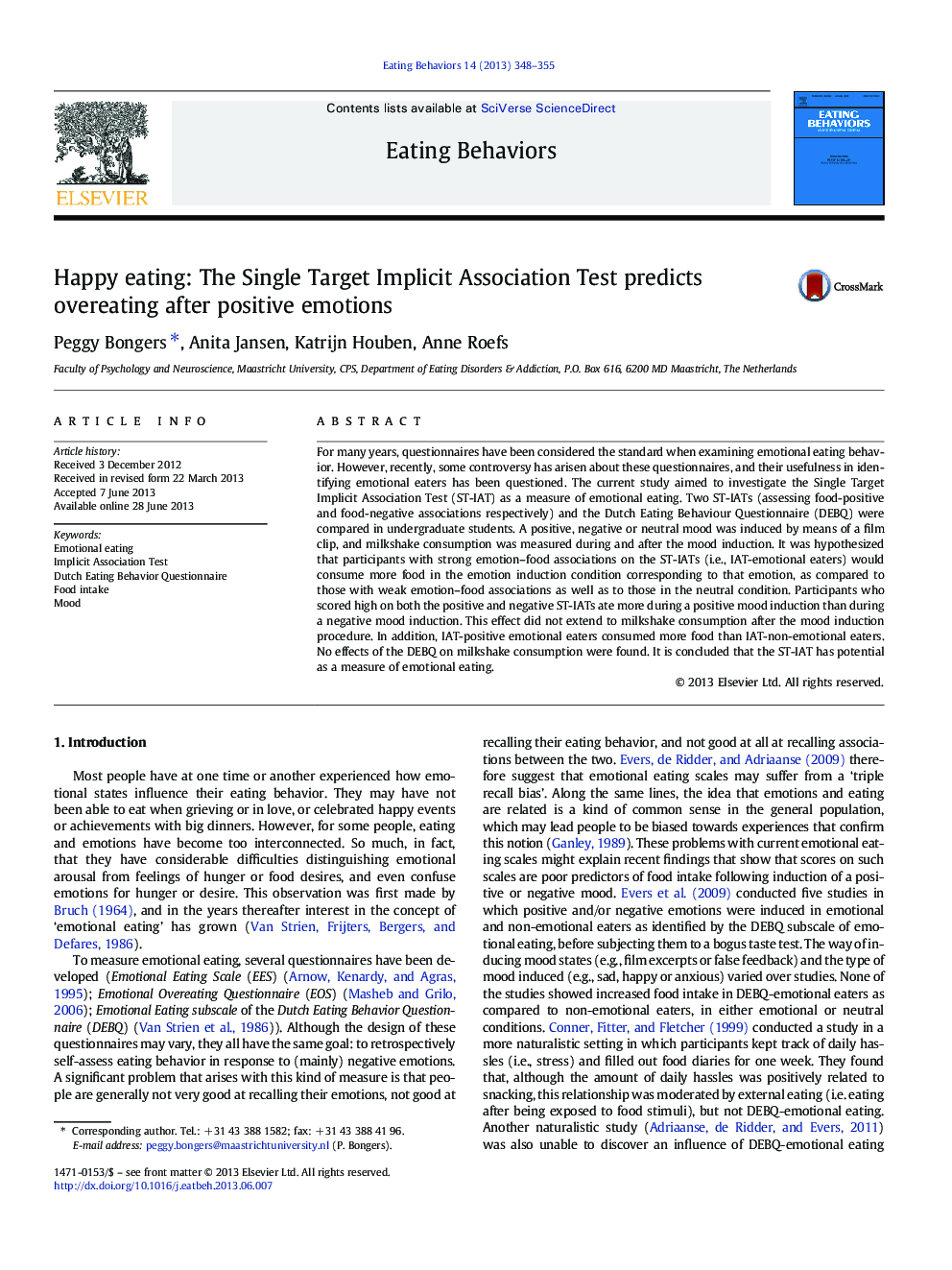| کد مقاله | کد نشریه | سال انتشار | مقاله انگلیسی | نسخه تمام متن |
|---|---|---|---|---|
| 906636 | 917014 | 2013 | 8 صفحه PDF | دانلود رایگان |

• We induced a positive, neutral or negative mood and measured food intake.
• The DEBQ, a positive and a negative IAT were used to measure emotional eating.
• IAT-emotional eaters consumed more food in a positive than in a negative mood.
• This effect was only present during the mood induction, not after.
• No effects of emotional eating scores on food intake were found for the DEBQ.
For many years, questionnaires have been considered the standard when examining emotional eating behavior. However, recently, some controversy has arisen about these questionnaires, and their usefulness in identifying emotional eaters has been questioned. The current study aimed to investigate the Single Target Implicit Association Test (ST-IAT) as a measure of emotional eating. Two ST-IATs (assessing food-positive and food-negative associations respectively) and the Dutch Eating Behaviour Questionnaire (DEBQ) were compared in undergraduate students. A positive, negative or neutral mood was induced by means of a film clip, and milkshake consumption was measured during and after the mood induction. It was hypothesized that participants with strong emotion–food associations on the ST-IATs (i.e., IAT-emotional eaters) would consume more food in the emotion induction condition corresponding to that emotion, as compared to those with weak emotion–food associations as well as to those in the neutral condition. Participants who scored high on both the positive and negative ST-IATs ate more during a positive mood induction than during a negative mood induction. This effect did not extend to milkshake consumption after the mood induction procedure. In addition, IAT-positive emotional eaters consumed more food than IAT-non-emotional eaters. No effects of the DEBQ on milkshake consumption were found. It is concluded that the ST-IAT has potential as a measure of emotional eating.
Journal: Eating Behaviors - Volume 14, Issue 3, August 2013, Pages 348–355